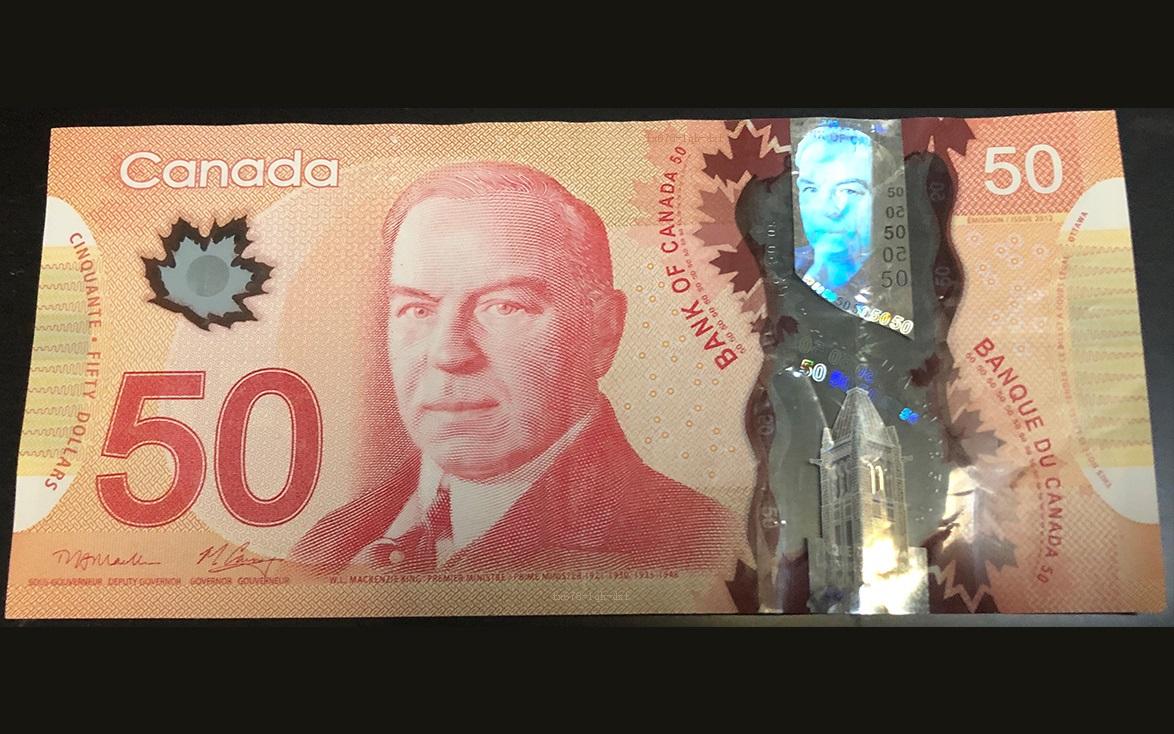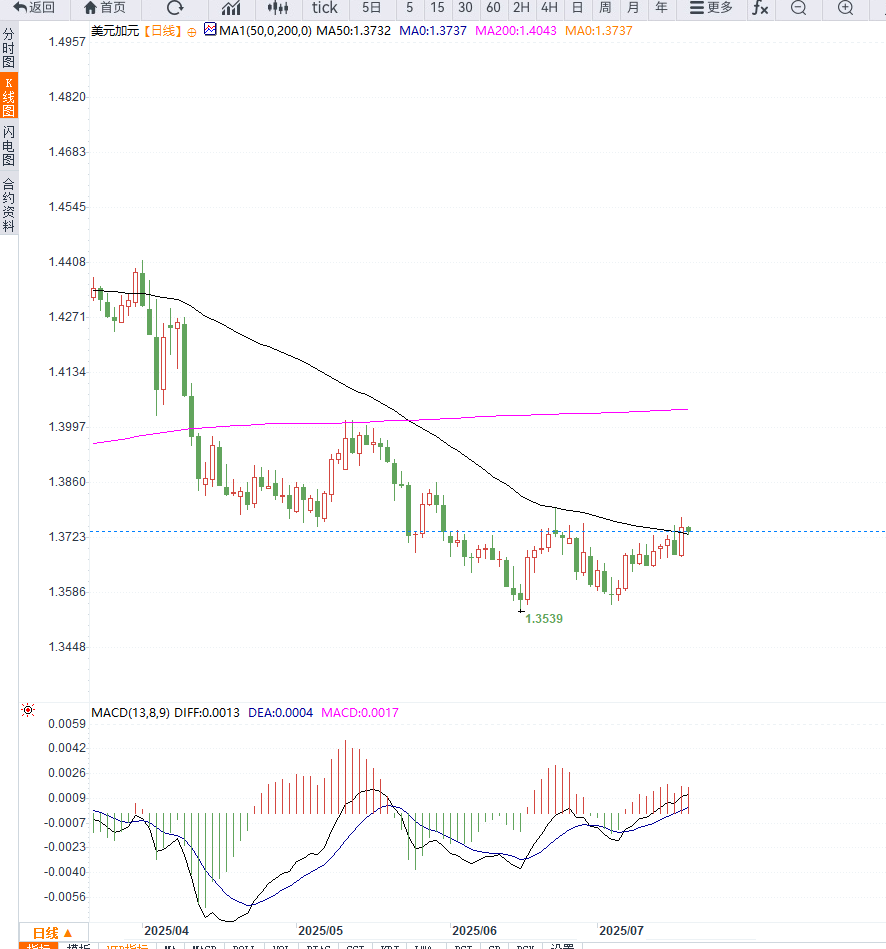The Fed's dovish remarks put pressure on the US dollar in the short term. Trump's announcement of a 35% tariff limited the Canadian dollar's gains. USD/CAD continued to rebound.
2025-07-18 14:42:54
The market remains divided on the prospect of rate cuts, and the dollar has limited downside potential.
Although some officials advocate a quick rate cut, the market as a whole still expects the Fed to maintain high interest rates for a longer period of time to cope with the potential rebound in inflation. This "long-term hawkish expectation" has become an important supporting factor in limiting the depreciation of the US dollar.

The Canadian dollar faces trade pressure, and the rebound in oil prices is unlikely to change the overall pressure pattern.
In Canada, the Canadian dollar is still weak. Trump announced that he would impose a 35% tariff on Canadian imports from August 1, and threatened to further increase the tariff if Canada retaliates. In addition, the United States will impose a 50% tariff on Canadian copper exports, making the outlook for commodity exports more uncertain.
Although international crude oil prices rebounded in the short term, the rise in oil prices did not significantly boost the Canadian dollar. The market believes that trade concerns outweigh the positive effects of oil prices, leaving the Canadian dollar lacking strong buying support on a fundamental basis.
In the short term, focus on data and the evolution of risk sentiment.
The market will next focus on the University of Michigan Consumer Confidence Index, inflation expectations and real estate data. In addition, risk appetite and oil price fluctuations are still important variables that determine the short-term direction of USD/CAD. Overall, the currency pair is expected to achieve a small increase for the second consecutive week.

Editor's opinion:
Although some Federal Reserve officials have sent dovish signals, the market's pricing of the overall interest rate path remains cautious, and the US dollar remains relatively resilient.
At the same time, the Canadian dollar is constrained by the pressure of Trump's tariffs and global trade uncertainties. Even if oil prices rebound, it is difficult to form a substantial boost. Therefore, USD/CAD maintains a strong consolidation above the 1.37 mark. The future trend still needs to observe the progress of the US-Canada trade negotiations and the simultaneous evolution of the Fed's policy signals.
- Risk Warning and Disclaimer
- The market involves risk, and trading may not be suitable for all investors. This article is for reference only and does not constitute personal investment advice, nor does it take into account certain users’ specific investment objectives, financial situation, or other needs. Any investment decisions made based on this information are at your own risk.










